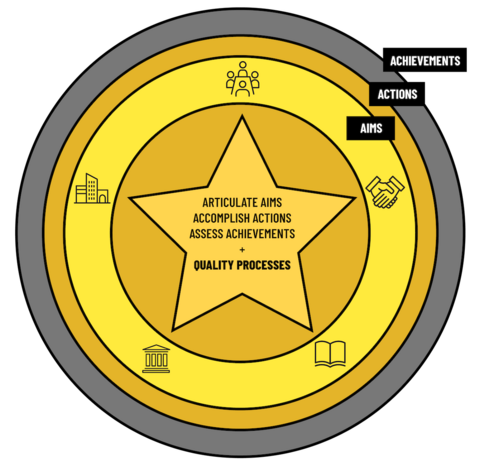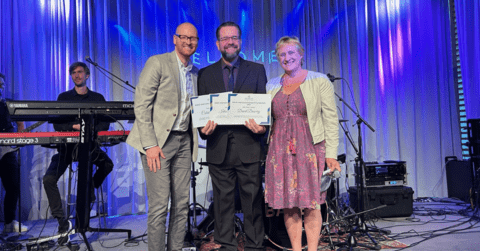
Experts in work-integrated learning
The Work-Learn Institute is the only research unit of its kind, dedicated to the development of talent through quality WIL opportunities.
At WxL, we’re passionate about work-integrated learning (WIL). We are experts in understanding how to make WIL “work” – for students, for employers and community partners, for government and policy makers, and for higher education institutions. We have studied WIL for over 20 years, published extensively, and built WIL programs locally, nationally, and internationally. Our commitment to research and innovation underpins everything we do.
It’s our mission to advance the theory and practice of all forms of WIL through research, education, and customized consulting.
What we do
Our research is innovative, data-driven, and aims to deepen the collective understanding and practice of WIL. Our transdisciplinary research approach positions us as global leaders in WIL research.
We create education and training resources that center on sharing research-informed WIL knowledge and expertise with all WIL stakeholders. We actively host dynamic events to connect WIL stakeholders.
We create customized training and resources to assist stakeholders in building and enhancing WIL globally. We purposefully lead program reviews, program development, and sponsored research.
What is WIL?
Work-integrated learning (WIL) has been defined in different ways across contexts. Co-operative Education and Work-Integrated Learning (CEWIL) Canada describes WIL as a form of curricular experiential education that formally integrates a student’s academic studies with quality experiences within a workplace or practice setting. WIL experiences include an engaged partnership of at least: an academic institution, a host organization, and a student (CEWIL, 2021). WIL comes in many forms, and CEWIL identifies 9 types of WIL in Canada.
Various types of WIL have different purposes, intensities, demand diverse resources, and yield differing results. We can help you identify what type of WIL best meets your needs based on your specific goals and context.
The guiding framework for quality WIL
We have developed the AAA* Framework. It is our guidepost to ensure our WIL programs are world-class and meet the needs and expectations of five primary stakeholders (educators, governments, host organizations and employers, institutions, and students). Grounded in decades of research and experience, the AAA* Framework has been widely recognized as an effective means for developing and evaluating WIL programs. It has even been adopted by CEWIL!
The AAA* framework outlines 3 critical elements for a successful WIL program:
- Define the Aims of all WIL stakeholders
- Implement the Actions required to accomplish those goals
- Evaluate the Achievements of all WIL stakeholders

Research spotlight
What does Gen Z prioritize in the workplace? To enhance understanding of the future workforce, Work-Learn Institute surveyed 2,097 Waterloo co-op students in 2022 to learn what values and work arrangements are most important to them. Findings of this study will help educators better support them in career planning and help employers attract and retain emerging Gen Z talent. From this report you’ll learn:
- How organizations can best support Gen Z by creating conducive work conditions.
- The universal human values Gen Z prioritizes.
- What to advertise in your job description to attract and retain top Gen Z talent.
News
Work-Learn Institute awarded CEWIL Canada Research Grant for second consecutive year
The Work-Learn Institute (WxL) at the University of Waterloo is proud to announce that it has received the CEWIL Canada Research Grant for the second year in a row. This recognition reinforces WxL's continued leadership in advancing work-integrated learning (WIL) research and its impact across Canada.
Work-Learn Institute’s David Drewery wins CEWIL award for research and impact
By: Matthew King
David Drewery PhD, associate director of the Work-Learn Institute (WxL) is this year’s recipient of Co-operative Education and Work-Integrated Learning Canada’s (CEWIL Canada) Dr. Graham Branton Research Award.
Work-Learn Institute wins Best Paper award at WACE conference in Sweden
By: Micaela Kelly (she/her)
Work-Learn Institute (WxL) earned the Best Paper Award at the 2024 WACE International Research Symposium.



